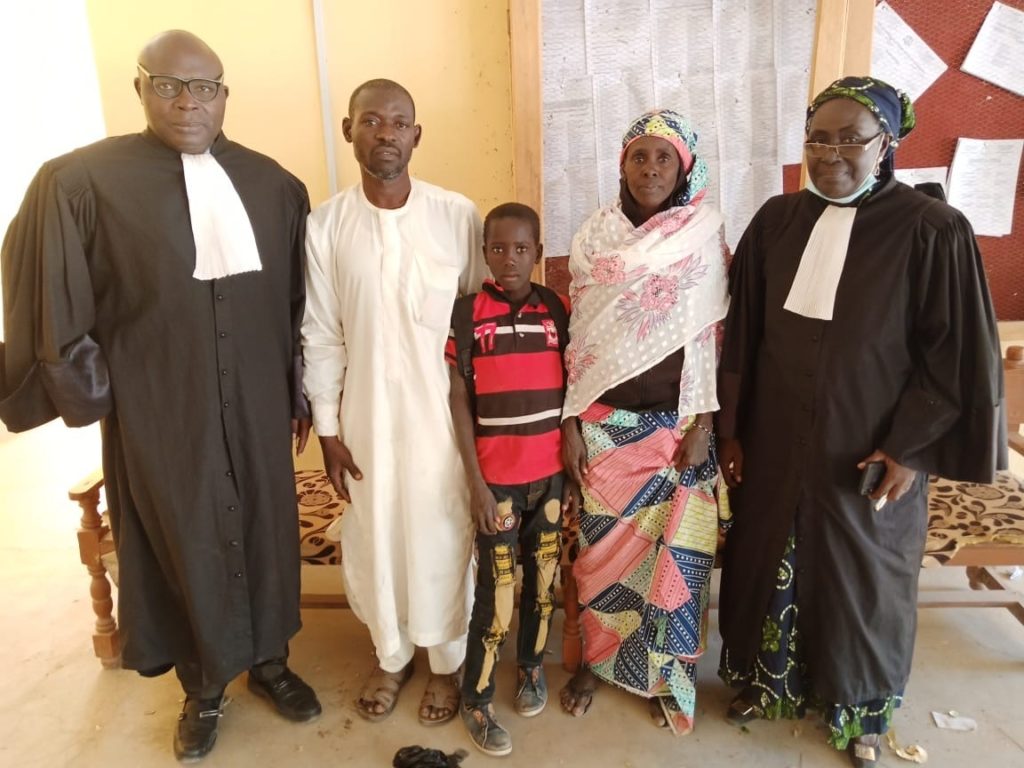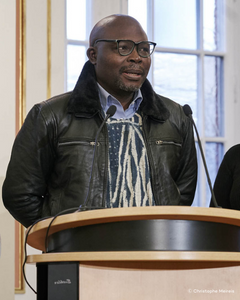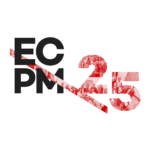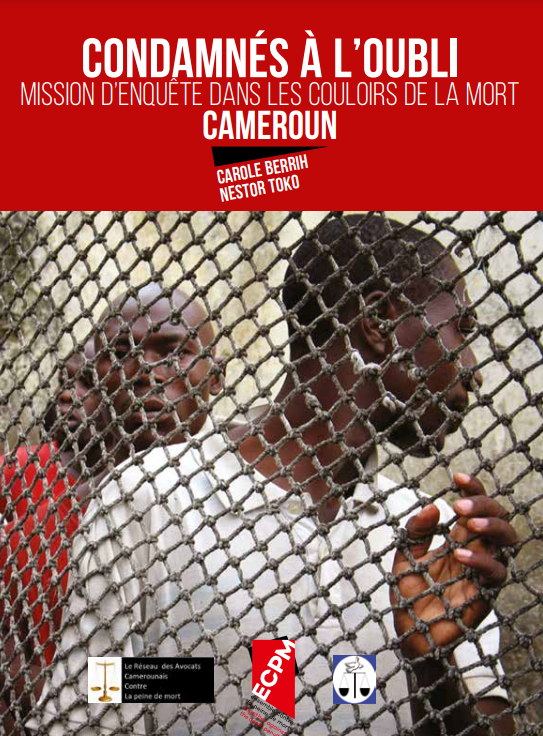
Why was Fati sentenced to death?
Fati was suspected of being colluded with Boko Haram terrorists by agents of the Kolofata vigilance committee. She was arrested on 24 January 2016 and accused with terrorism charges. She allegedly made statements about a suicide bombing that occurred on 13 September 2015 in the locality of Kolofata, during which 3 people were killed, including her husband. Although she was questioned at the preliminary investigation without a lawyer and in a language she did not speak, Fati denied these facts. She stated to the first judge that the main witness denounced her to the authorities, seaking revenge after she refused his advances. Despite the absence of a confession from Fati and without any confrontation with her denouncers or direct evidence of her involvement in the aforesaid explosion in Kolofata, the military court of Maroua gave a verdict based solely on the minutes of the preliminary investigation on 16 October 2016. She was found guilty of acts of terrorism and sentenced to death.
How did you become interested in her case?
During a visit to the central prison in Maroua, a team of lawyers from the Network of Cameroonian Lawyers Against the Death Penalty (RACOPEM) interviewed the death row prisoners. We identified several cases that were pending on appeal and who unfortunately could not afford a lawyer. Although Fati was present during the interviews, she was quiet and did not open up. Her attitude caught our attention and we wanted to know more about her case. There was a language barrier, so we hired an interpreter to help her tell her story. It was a poignant story that revolted us because Fati, who is actually the victim in this case, is the one who was sentenced to death. We chose to defend her on appeal.
How did you approach her case?
Before a military court in Cameroon, and in cases of terrorism that are subject to special monitoring by the executive, it is not always easy to obtain the reversal of a conviction handed down in court. Knowing well that the verdict can be decided outside the courtroom, our strategy was to make ourselves heard at the appeal. We were convinced of our client’s innocence, as she had given us a version of the facts that was totally different from the official one. To do this, we had to prepare the judges for the defence’s version of the facts without incurring their wrath. With the help of the Debevoise law firm in New York and the Cornell Center on the Death Penalty Worldwide in the United States, an international media campaign was set around the case. Of course, it is a matter of principle that the prosecution must prove the charge. We realised that in this sensitive case, pointing out the limitations of the accusation would not be enough. In addition to that, the defendant had to prove her own case. We strengthened the defence team by bringing in a lawyer who was culturally close to Fati and who convinced her to give us more details about the circumstances of the case. We called a witness, an agent of the vigilance committee in Kolofata, who questioned the official version of the facts and corroborated the version of the facts of the accused Fati. On appeal on 13 February 2023, the Court of Appeal of the Far North in Maroua acquitted Fati. She now regains her freedom after nearly seven years behind bars.
Does such cases give reasons for hope about the death penalty situation in Cameroon?
One of the reasons for abolishing the death penalty is the risk of innocent people being sentenced to death. And this case is a perfect example of that. The final judgment in this case will support our advocacy for the abolition of the death penalty in Cameroon.

Lawyer and President of the Network of Cameroonian Lawyers against the Death Penalty (RACOPEM) and coordinator of the association Rights and Peace, both partners of ECPM in Cameroon, Mr Toko Monkam is also winner of the Defence Prize with RACOPEM awarded at the 8th World Congress against the Death Penalty. In 2020, ECPM took part in the case of three minors sentenced to death on terrorism charges, althought their arrestation by the military actually occured while they were fleeing Boko Haram. The three unjustly convicted young women were acquitted and released, a first in the country. In its report “Sentenced to oblivion: fact-finding mission on death row, Cameroon” (2019), ECPM highlighted the increasing number of unfair trials in terrorism cases. ECPM continues to engage with its partners to strengthen legal assistance for the most vulnerable people facing the death penalty.

